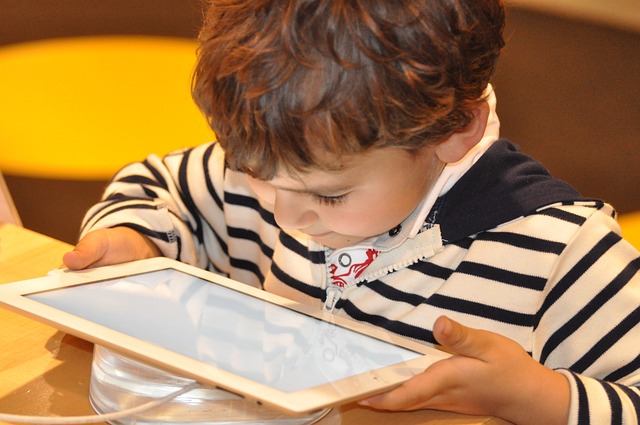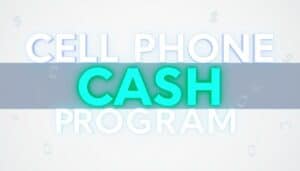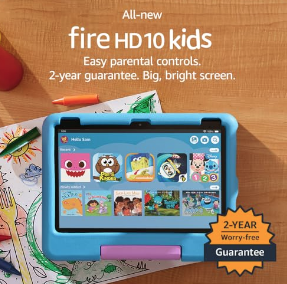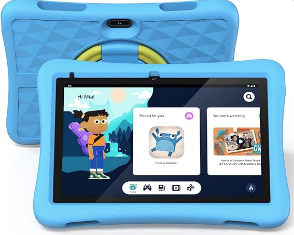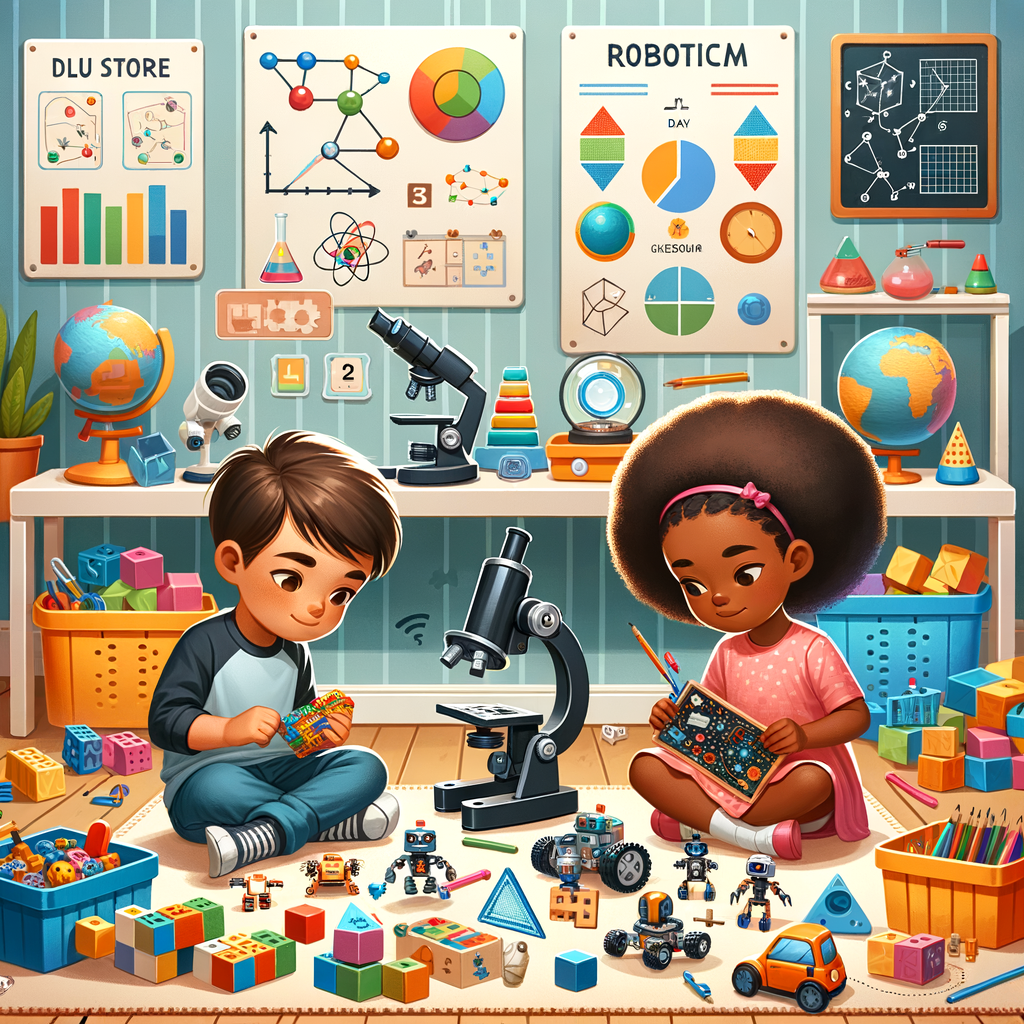Top 10 Educational Apps For Kids: Maximizing Screen Time Value
In today’s digital age, finding the balance between screen time and educational content for kids is crucial. As parents and educators navigate this landscape, the role of technology in shaping children’s learning experiences becomes increasingly significant. Educational apps present a valuable opportunity to make screen time meaningful by combining entertainment with knowledge acquisition.
With the abundance of educational apps available, selecting the right ones can be overwhelming. To aid you in this endeavor, we have curated a list of the top 10 educational apps for kids that not only engage but also enrich young minds. These apps have been chosen for their ability to turn passive screen time into active learning experiences, making each moment count towards a child’s development.
By integrating interactive games, engaging activities, and skill-building exercises, these apps offer a blend of fun and education that resonates with children of various ages. Whether it’s enhancing literacy, numeracy, problem-solving, or creativity, each app on our list is designed to stimulate young learners and foster a love for learning in a digital environment.
Join us on a discovery journey through the realm of educational apps, where screen time transcends mere entertainment to become a tool for educational empowerment. Let’s delve into the realm of interactive learning and unlock the potential of technology to shape the minds of the future generation.
The Impact of Educational Apps on Children’s Learning
In today’s digital age, educational apps have revolutionized how children engage with learning materials, offering a myriad of benefits that significantly impact their cognitive development and academic progress.
Cognitive Development
Educational apps play a pivotal role in stimulating children’s critical thinking skills by presenting challenges and puzzles that require problem-solving abilities. Through interactive games and quizzes, these apps enhance memory retention by reinforcing knowledge in an engaging manner. Additionally, they aid in improving information processing capabilities, allowing children to absorb and analyze information effectively.
Academic Improvement
By supplementing traditional learning methods, educational apps offer a dynamic and immersive approach to education. They provide a personalized learning experience tailored to individual learning styles, helping children grasp difficult concepts in a fun and interactive way. As a result, academic outcomes are enhanced, leading to improved performance in various subjects.
Photo by Vlada Karpovich
Making Screen Time Educational and Engaging
Have you ever thought about turning screen time into a valuable learning experience for your kids? With the right educational apps, you can transform their digital interactions into engaging opportunities for growth and development. Let’s explore how interactive learning tools and parental guidance can make screen time both educational and entertaining.
Interactive Learning Tools
Educational apps with interactive features play a crucial role in keeping children engaged and motivated to learn. These tools go beyond traditional methods by incorporating games, quizzes, and other interactive elements that make learning fun and interactive. By actively participating in educational activities on these apps, kids can absorb knowledge in a way that feels like play, enhancing their retention and understanding of educational concepts.
Integrating interactive learning tools into educational apps helps cater to diverse learning styles and keeps children actively involved in the learning process. Whether it’s solving puzzles, matching shapes, or completing challenges, these interactive features make learning dynamic and exciting. By combining education with entertainment, these apps create a stimulating environment that encourages curiosity and exploration in young learners.
 Photo by Artem Podrez
Photo by Artem Podrez
Parental Guidance and Monitoring
While educational apps can be beneficial, parental guidance and monitoring are essential to ensure a balanced screen time experience for children. Parents play a vital role in setting limits, selecting appropriate apps, and monitoring their children’s app usage to safeguard against excessive screen time. By actively participating in their children’s digital activities, parents can guide them towards educational content and away from potentially harmful or distracting material.
Engaging in discussions about the content of educational apps, setting screen time boundaries, and monitoring usage can help parents create a healthy digital environment for their children. By supervising their app interactions, parents can address any concerns, reinforce positive behaviors, and encourage responsible screen time habits. Involvement in children’s app usage also allows parents to identify opportunities for additional learning and exploration tailored to their child’s interests and developmental needs.
Top 10 Educational Apps for Kids
In today’s digital age, educational apps have revolutionized the way children learn and engage with content. From basic alphabet recognition to advanced coding challenges, there is a plethora of apps available to cater to every age group and learning objective. Let’s explore some of the top educational apps for kids that are not only fun but also enriching.
Age 3-5 Apps
At this tender age, it’s crucial to introduce young children to educational apps that focus on fundamental skills development. These apps help in enhancing alphabet recognition, counting abilities, early literacy, and more. Apps like ABCmouse and Endless Alphabet are interactive and engaging, making learning a joyful experience for preschoolers.
 Photo by Gustavo Fring
Photo by Gustavo Fring
Age 6-8 Apps
For kids in the 6-8 age group, educational apps play a vital role in enhancing reading comprehension, math skills, and problem-solving abilities. Apps like Prodigy and Epic! offer a variety of content that not only educates but also entertains, keeping children engaged while they learn.
Age 9-12 Apps
As children grow older, their educational needs evolve. Apps designed for the 9-12 age group offer more advanced challenges in subjects like science, geography, coding, and more. Apps such as Duolingo for language learning, NASA for science enthusiasts, and Swift Playgrounds for budding coders provide an enriching learning experience.
Specialized Learning Apps
Specialized learning apps cater to specific educational needs, focusing on subjects like language learning, art, music, or STEM topics. Apps like Khan Academy Kids for a wide range of subjects, Simply Piano for music enthusiasts, and ScratchJr for an introduction to coding, offer a diverse range of learning opportunities for children with distinct interests and learning styles.
Incorporating these top educational apps into your child’s screen time can make a significant impact on their learning journey. Engaging, informative, and entertaining, these apps ensure that screen time is not just passive entertainment but a valuable learning experience.
Ensuring Appropriate Screen Time Limits
In today’s digital age, managing and setting limits on children’s screen time, especially when using educational apps, is crucial for their overall well-being. Here are some effective strategies to ensure your child’s screen time is both educational and balanced:
Utilizing Screen Time Management Apps
One helpful way to monitor and regulate your child’s screen time is by using screen time management apps. These tools provide features that allow parents to set time limits, monitor usage, and even block access to certain apps. Apps like “OurPact” and “Screen Time Parental Control” are popular choices that offer a range of functionalities to help parents ensure their children are using educational apps appropriately.
Establishing Healthy Screen Time Habits
Creating healthy screen time habits is essential in maintaining a balanced approach to technology use. To establish a routine that incorporates educational app usage along with other activities, consider the following tips:
- Set a Schedule: Designate specific times for educational app usage, homework, physical activities, and family time.
- Encourage Breaks: Remind your child to take regular breaks from screen time to rest their eyes and engage in other activities.
- Limit Distractions: Create a distraction-free environment during educational app sessions to enhance focus and learning.
- Lead by Example: Be a role model by demonstrating healthy screen time habits and engaging in non-digital activities together.
By implementing these strategies and utilizing screen time management apps, parents can effectively manage their child’s screen time, ensuring a healthy balance between educational app usage and other activities.
Photo by Kampus Production
Conclusion
Educational apps for kids offer a multitude of benefits, from fostering learning to enhancing cognitive skills. By incorporating these apps into screen time, parents can transform passive entertainment into valuable educational experiences. Parental involvement is key in guiding children to use these apps effectively, ensuring they engage with age-appropriate content and learn in a safe digital environment. Making screen time count by selecting engaging and educational apps can turn a potentially mindless activity into a productive learning session. Embrace the power of educational apps to make screen time not only enjoyable but also enriching for your child’s development.
Latest Post
- What Is a Faraday Bag? Why Every Prepper Needs One
- Best Budget Laptops for College Students (2025) | Under $400
- What Is A Faraday Bag?
- TOZO PB3 Portable Charger: Lightweight Power For Your Devices
- Unlock Passive Income With The Cell Phone Cash Program
- JavaBurn: Does It Live Up To The Hype?

